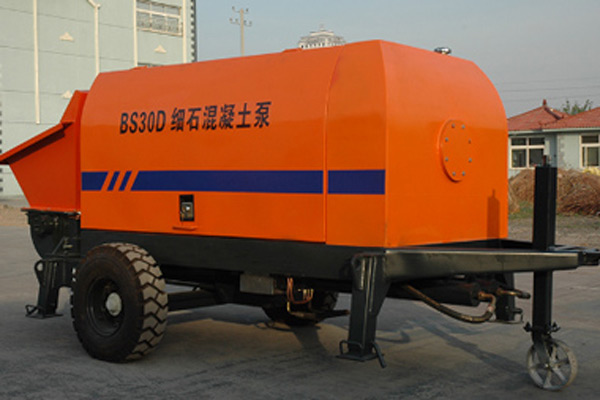What is concrete pumping?
Concrete pumping is the process of conveying liquid concrete from one point to another. It is an efficient method of pouring concrete where it is required. Small concrete pumps are becoming more and more popular.
For more than fifty years now, concrete pumps are slowly taking over from different methods of transferring liquid concrete. The first half of the 20th century saw numerous designs of concrete pumps developed.
The additional pieces of equipment that form part of the pump determine the different types of concrete pumps. These additions give rise to two major concrete pumps constructors use in the concrete pumping process. We can also provide you with mobile concrete pump.
The first one, known as ‘boom pump’ is operated through a remote control and uses a robotic arm. Since boom pumps transfer massive amounts of liquid concrete, they are utilized in more complex and larger construction projects.
The second one, known as a line pump, is a smaller concrete pump that uses steel flexible hose to transfer liquid concrete. These pumps are usually conveniently employed in medium and small size projects.
The recent times have witnessed the smaller concrete pump become a common choice for many customers and constructors. Perhaps this is because of their portable units which a person can use to mix concrete as well as pour it into position. This portability is useful for walkways and sideways. You can look at our line pump for sale.
The unique mini concrete pumps can utilize even minuscule amounts of concrete and still offer high structural integrity and efficiency.
Small concrete pumps offer constructors many advantages which include:
1. Ensure constant concrete flow
Many small concrete pumps are designed to pump concrete as faster as it (concrete) is discharged into them. This smooth flow decreases operation delays and attendant stoppages.
2. Larger volume of concrete per hour
Mechanical pumping allows a significant amount of concrete to be poured. This ensures your project is completed within the shortest time. The high volume transferred at a time also ensures that the project remains within a specified (tight) budget. Click here for more information: http://smallconcretepump.com/diesel-concrete-pump/.
3. No time wastage
Small concrete pumps are quick to fix, and they ensure a continuous flow which translates into less waiting around hence fewer man hour wastages.
4. Lower labor costs
Labor is usually a huge cost incurred in construction. Therefore, saving on it not only benefits the project but the customer as well. The mini concrete pumps are convenient in this case because they do not require many people to place concrete exactly where it is needed. Only a minimum number of workers required.
5. Faster concrete placement
Be it small scale or large scale construction, the speed of the pour is paramount. One of the reasons a small concrete pump is becoming a common choice among customers is that mechanical pouring is faster compared to other traditional pouring methods. Concrete pumps ensure that you meet deadlines as you utilize only one piece of equipment.
6. Environmentally friendly
The use of smaller concrete pumps sustains the pristine beauty of the environment. Besides using less water, the process enhances the strength of the concrete. The added strength curbs the problem of cracks and shrinkage.
Mechanical pumping methods are more precise, more efficient and much faster than the traditional mix- and- pour methods. Why not visit this website: http://smallconcretepump.com/.
